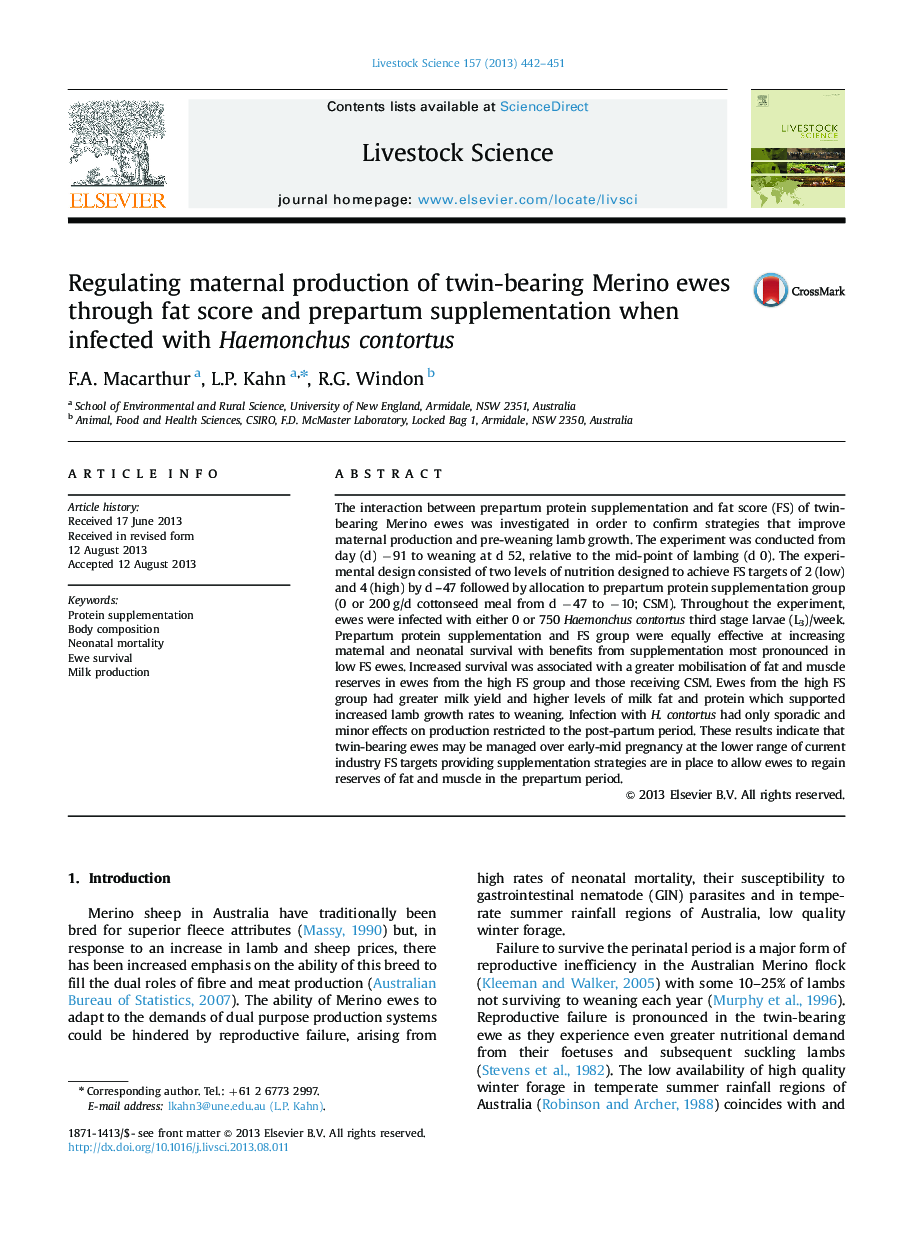| Article ID | Journal | Published Year | Pages | File Type |
|---|---|---|---|---|
| 2447370 | Livestock Science | 2013 | 10 Pages |
The interaction between prepartum protein supplementation and fat score (FS) of twin-bearing Merino ewes was investigated in order to confirm strategies that improve maternal production and pre-weaning lamb growth. The experiment was conducted from day (d) −91 to weaning at d 52, relative to the mid-point of lambing (d 0). The experimental design consisted of two levels of nutrition designed to achieve FS targets of 2 (low) and 4 (high) by d –47 followed by allocation to prepartum protein supplementation group (0 or 200 g/d cottonseed meal from d −47 to −10; CSM). Throughout the experiment, ewes were infected with either 0 or 750 Haemonchus contortus third stage larvae (L3)/week. Prepartum protein supplementation and FS group were equally effective at increasing maternal and neonatal survival with benefits from supplementation most pronounced in low FS ewes. Increased survival was associated with a greater mobilisation of fat and muscle reserves in ewes from the high FS group and those receiving CSM. Ewes from the high FS group had greater milk yield and higher levels of milk fat and protein which supported increased lamb growth rates to weaning. Infection with H. contortus had only sporadic and minor effects on production restricted to the post-partum period. These results indicate that twin-bearing ewes may be managed over early-mid pregnancy at the lower range of current industry FS targets providing supplementation strategies are in place to allow ewes to regain reserves of fat and muscle in the prepartum period.
